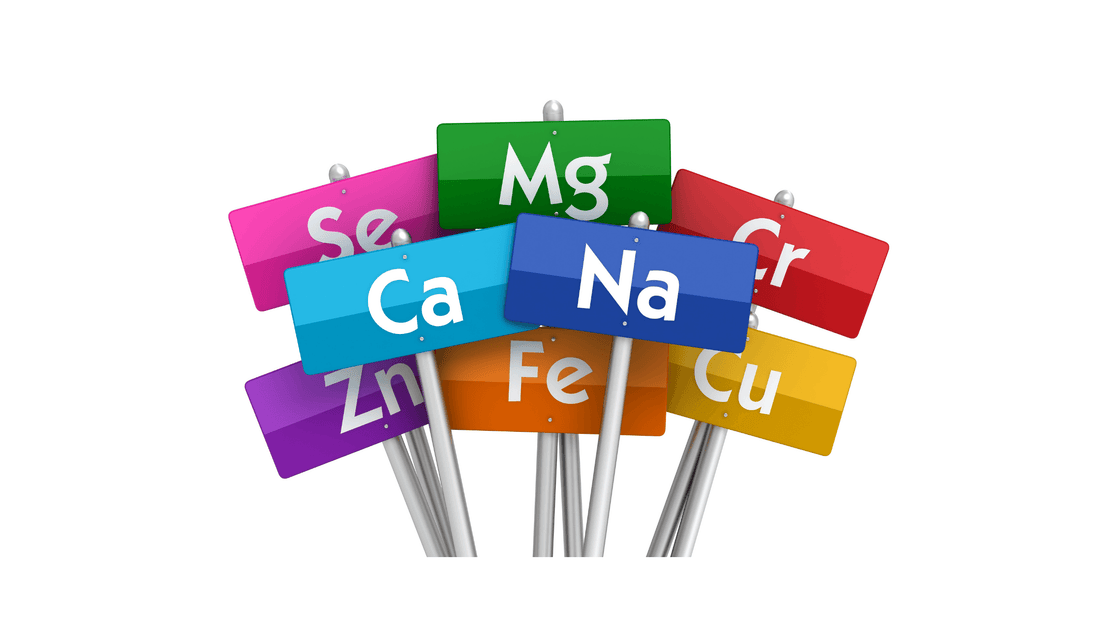
Are you deficient of this Mineral that Relieves Headaches, menstrual cramps and Anxiety?
Naturally YoursShare

And the superstar mineral is (drumrolls please) - Magnesium
Magnesium, an abundant mineral in the body, is naturally present in many foods, added to other food products, available as a dietary supplement, and present in some medicines (such as antacids and laxatives).
It is primarily stored in the bones of your body. A very small amount of magnesium circulates in your bloodstream.
Role of Magnesium in the body
- Magnesium is a cofactor in more than 300 enzyme systems that regulate diverse biochemical reactions in the body, including protein synthesis, muscle and nerve function, blood glucose control, and blood pressure regulation.
- It is required for energy production, oxidative phosphorylation, and glycolysis. It contributes to the structural development of bone and is required for the synthesis of DNA, RNA, and the antioxidant glutathione.
- Magnesium also plays a role in the active transport of calcium and potassium ions across cell membranes, a process that is important to nerve impulse conduction, muscle contraction, and normal heart rhythm, protein synthesis, cellular energy production and storage, stabilization of cells, DNA synthesis, bone metabolism, glucose and insulin metabolism, regulating blood pressure
Ideal Magnesium levels in the body
- An adult body contains approximately 25 g magnesium, with 50% to 60% present in the bones and most of the rest in soft tissues.
- Less than 1% of total magnesium is in blood serum, and these levels are kept under tight control. Normal serum magnesium concentrations range between 0.75 and 0.95 millimoles (mmol)/L.
- Hypomagnesemia is defined as a serum magnesium level less than 0.75 mmol/L.
- Magnesium homeostasis is largely controlled by the kidney, which typically excretes about 120 mg magnesium into the urine each day. Urinary excretion is reduced when magnesium status is low.
Symptoms of low magnesium
Early signs of low magnesium include:
- Headache
- Nausea
- Vomiting
- Weakness
- Decreased appetite
- Anxiety and depression
- Severe Menstrual cramps
As magnesium deficiency sometimes worsens, the symptoms may include:
Numbness, Tingling sensation, Muscle cramps, Seizures.
Causes of low magnesium

Low magnesium is typically due to decreased absorption of magnesium in the gut or increased excretion of magnesium in the urine.
Low magnesium levels in otherwise healthy people are uncommon. This is because magnesium levels are largely controlled by the kidneys. The kidneys increase or decrease excretion (waste) of magnesium based on what the body needs.
Continually low dietary intake of magnesium, excessive loss of magnesium, or the presence of other chronic conditions can lead to hypomagnesemia.
Hypomagnesemia is also more common in people who are hospitalized. This may be due to their illness, having certain surgeries, or taking certain types of medication. Very low magnesium levels have been linked to poorer outcomes.
Conditions that increase the risk of magnesium deficiency include gastrointestinal (GI) diseases, advanced age, type 2 diabetes, use of loop diuretics (such as Lasix), treatment with certain chemotherapies, and alcohol dependence.
Diagnosis of low magnesium
Your doctor will diagnose hypomagnesemia based on a physical exam, symptoms, medical history, and a blood test.
A blood magnesium level doesn’t tell you the amount of magnesium your body has stored in your bones and muscle tissue. But it’s still helpful for indicating whether you have hypomagnesemia.
Your doctor will likely also check your blood calcium and potassium levels.
A normal serum (blood) magnesium level is 1.8 to 2.2 milligrams per decilitre (mg/dL). Serum magnesium lower than 1.8 mg/dL is considered low. A magnesium level below 1.25 mg/dL is considered very severe hypomagnesemia.

Treatment of low magnesium
Hypomagnesemia is typically treated with oral magnesium supplements and increased intake of dietary magnesium.
If your hypomagnesemia is severe and includes symptoms such as seizures, you may receive magnesium intravenously, or by IV fluids.
Complications of low magnesium
If hypomagnesemia and its underlying cause remain untreated, severely low magnesium levels can develop.
Severe hypomagnesemia can have life-threatening complications such as: seizures, cardiac arrhythmias (abnormal heart patterns), coronary artery vasospasm and sudden death also can happen in some cases.
Magnesium rich foods

Foods that are high in fibre are generally high in magnesium.
Dietary sources of magnesium
- Legumes (kidney beans, chick pea, peas, soybean)
- Whole grain cereals(white rice, buck wheat, quinoa, cooked brown rice,oats)
- Vegetables (especially raw carrot, baked potato with skin, collard greens, okra, tamarind, kale, turnip greens, mustard greens, broccoli, spinach, squash, and green leafy vegetables)
- Seeds and nuts (especially cocoa, peanut butter, almonds, squash seeds, pumpkin seeds, flaxseeds, sunflower seeds, chia seeds, cashew & peanut, hazel nut, brazil nut)
- Other sources include tofu and soy milk, dairy products like milk, yogurt, tempeh, kefir, lean meats, chicken breast, dark chocolate, and coffee.
- Water with a high mineral content, or "hard" water, is also a source of magnesium.
- Fruits like avocado, banana, prunes, fig, plantain and fatty fishes like mackerel, rock fish, oysters, tuna, pollock, scallops, halibut and salmon.
The daily Recommended Dietary Allowances (RDA) for elemental magnesium in general are:
Men : 340 mg
Women : 310 mg
The daily upper intake level (UL) for magnesium is 350 mg for anyone over 8 years old, including pregnant and breast-feeding women.
Bottom Line
Nearly every is magnesium deficient. However, it is a relatively simple deficiency to correct — if you take action to eat more magnesium-rich foods or supplement.
If you experience any of the symptoms above, consult with your doctor and/or receive a blood panel to determine if you are deficient.
At the very least, consuming more magnesium-rich foods will reduce your chances of experiencing hardening of the arteries, enhance your sleep, and help balance your mood.
ABOUT THE AUTHOR

Somy Mary Mathew, MSc Clinical Nutrition and Dietetics
Somy is a nutritionist who is currently pursuing Ph.D in Food Science and technology. She has over 15+ years of experience as a nutritionist and dietician in various hospitals across India. She has also worked as the Consultant Nutritionist for pediatric patients.


